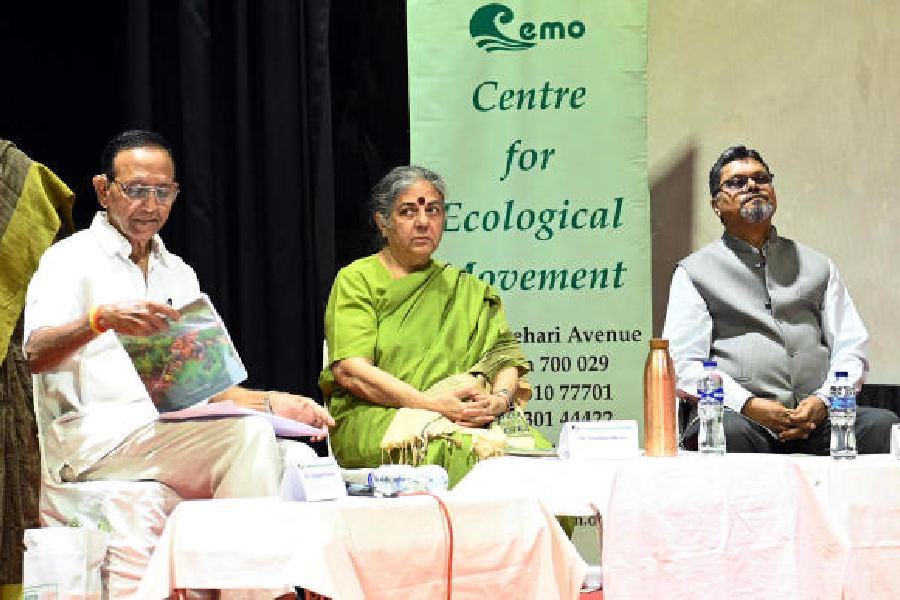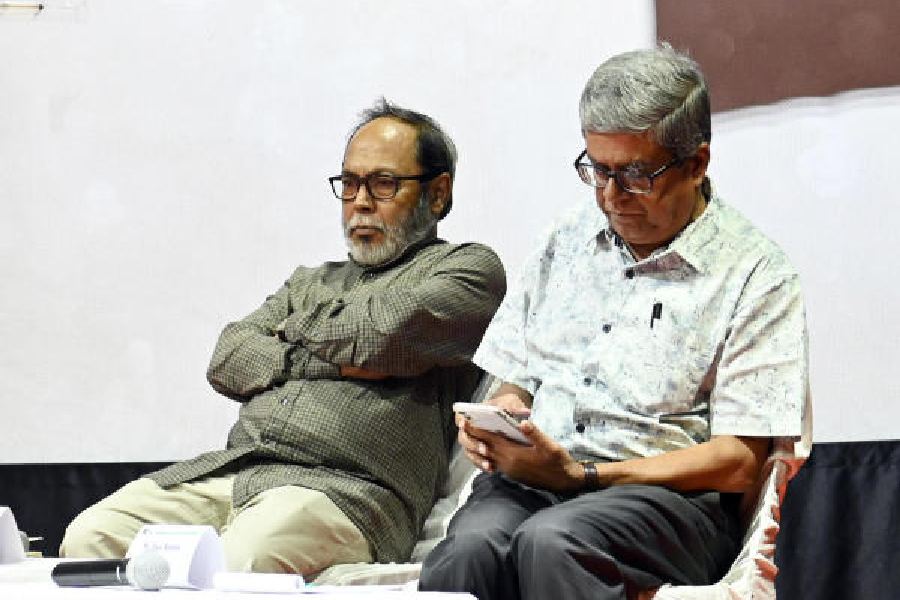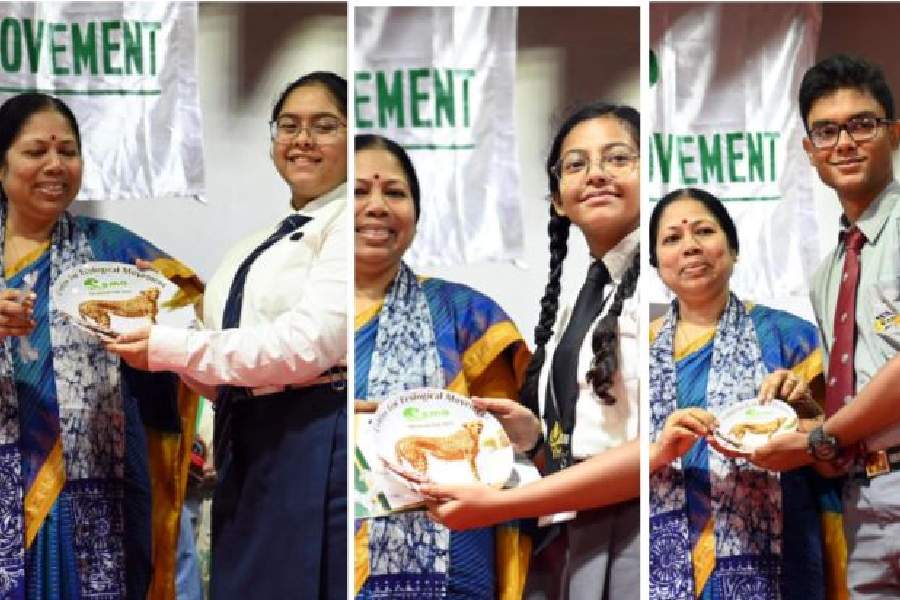Monsoon Fest 2023, a daylong programme to generate awareness about environmental degradation and come up with new ways to protect the natural world was conducted by the Centre for Ecological Movement (CEMO) on June 30 at Rotary Sadan. The programme started with an inter-school debate that saw participation from six well-known city schools. The motion of the debate was ‘Introducing Cheetahs from Africa into Kuno National Park in Madhya Pradesh, India, is a judicious move’.
The participating schools presented and refuted one another’s points of view during the debate with reasoning and confidence. Young Horizons School won the best team award, while the highest-scoring speaker awards were presented to the teams of Heritage Academy, Howrah, and The Heritage School, Calcutta. Hridika Deb from The Heritage School won the best speaker award.
This was followed by a panel discussion comprising eminent speakers, including environmental scientists and activists, on ‘The importance of Sundarbans and the mangroves’. Vandana Shiva, Sugata Hazra, Atanu Raha and Sampath Kumar, spoke about the reasons behind the receding mangroves in the Sunderbans. They explained that the main reason was a 3.3-metre rise in the sea level over the past 12 years, which has drowned many islands and will result in the disappearance of 30 per cent of the mangrove islands by 2058. All the speakers unanimously agreed that mangroves can be saved by preventing human intervention and by allowing farming and fishing to go on naturally.

(Left to right) Naturalist and Supreme Court advocate Sampath Kumar, scholar and environment activist Dr Vandana Shiva and Techno India University emeritus professor of biotechnology, Dr Atanu Raha, discussed the reasons for the disappearing islands of the Sunderbans.

Professor Sugata Hazra with Raju Raman (right), who was a moderator of the panel discussion and one of the judges of the interschool debate. “It has been a wonderful experience witnessing 12 youngsters debating on a topic which is a burning issue nowadays because ecological balance is something we need to think about,” said Raju Raman.
Pictures: Rashbehari Das
